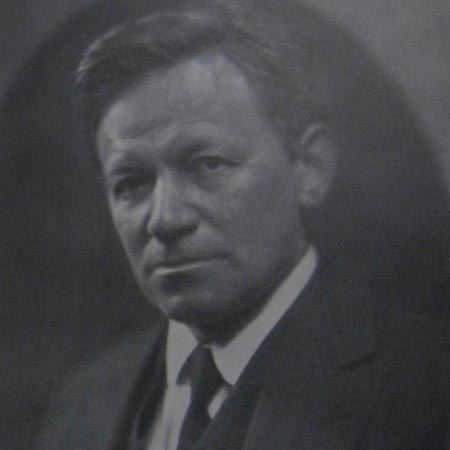LIESSIN, ABRAHAM (pseudonym of Abraham Walt; 1870–1938), Yiddish poet and editor. Born in Minsk (Belorussia), Liessin received a traditional Jewish education. He showed an early interest in philosophy, Haskalahliterature, and socialist reform. Besides establishing himself among Russian Jewish workers and socialist leaders as a revolutionary Yiddish poet and social satirist, he also became an active member of the Jewish Labor *Bund from its inception in 1897. That same year, his socialist agitation forced him to flee to New York, where he found work writing for and editing the Yiddish daily *Forverts. In 1913 he began a 15-year career as editor of *Di Tsukunft, a monthly Yiddish literary and cultural journal. While his socialism was nurtured by the physical poverty of New York’s Lower East Side, Liessin also noted a spiritual poverty amongst Jewish socialists. He sought to combat this trend by articulating positive role models for revolution from within the Jewish tradition. Thus although not a Zionist, Liessin was an ardent Jewish nationalist; and his writing draws inspiration from Jewish religious and national heroes such as *Judah Maccabee, *Bar Kochba, Solomon *Molcho, Rabbi *Meir of Rothenburg, and Hirsch *Lekkert. Liessin’s activism did not compromise his lyrical art, however, and he remained a meticulous editor of his own work, which is often described as lyrical and melodious. It can be read as a bridge between the idealist political poetry of the *Sweatshop Poets of the late 19th century (such as Morris *Rosenfeld and Dovid *Edelstadt) and the aestheticizing poetry of Di *Yunge at the beginning of the 20th century. Dominating his work are the idealist thematics of heroism, martyrdom, morality, and suffering (Christian imagery also features prominently), all of which served his Jewish socialist aspirations. His first collection, Moderne Lider (“Modern Poems”), was published illegally in 1897 in Minsk. His complete poetry was published in three volumes, with line drawings by Marc *Chagall, in New York in 1938 (Lider un Poemen, “Poems and Long Poems”). His prose includes a posthumously published collection entitled Zikhroynes un Bilder (“Memoires and Images,” 1954).
BIBLIOGRAPHY:
Reyzen, Leksikon, 2 (1927), 259–66; LNYL, 5 (1963), 179–91; B. Bialostotsky, Lider un Eseyen (1932), 79–130; E. Shulman, Geshikhte fun der Yidisher Literatur in Amerike (1943), 200–6; Z. Shazar, Or Ishim (1955), 195–207; H. Eivick, Eseyen un Redes (1963), 164–74; B. Rivkin, Yidishe Dikhter in Amerike (1959), 72–79; Waxman, Literature, 4 (1960), 1023–28; S. Bickel, Shrayber fun Mayn Dor (1965), 210–4; I. Ch. Biletzky, Essays on Yiddish Poetry and Prose Writers (1969), 15–22. ADD. BIBLIOGRAPHY: S. Liptzin, A History of Yiddish Literature (1972), 97–8; K. Bez, in: Tsukunft, 79 (1973), 82–5; E. Goldsmith, in: The Jewish Book Annual, 52 (1994–5), 163–75.


10 thoughts on “Kaminos”
Was Nicholas related to Alexander Saslavsky who married Celeste Izolee Todd?
Anyone have a contact email for Yair Klinger or link to score for Ha-Bayta?
wish to have homeland concert video played on the big screen throughout North America.
can organize here in Santa Barbara California.
contacts for this needed and any ideas or suggestions welcomed.
Nat farber is my great grandpa 😊
Are there any movies or photos of max kletter? His wife’s sister was my stepmother, so I’m interested in seeing them and sharing them with his wife’s daughter.
The article says Sheb recorded his last song just 4 days before he died, but does not tell us the name of it. I be curious what it was. I’d like to hear it.
Would anyone happen to know where I can find a copy of the sheet music for a Gil Aldema Choral (SATB) arrangement for Naomi Shemer’s “Sheleg Al Iri”. (Snow on my Village)?
Joseph Smith
Kol Ram Community Choir, NYC
שלום שמעון!
לא שכחתי אותך. עזבתי את ישראל בפברואר 1998 כדי להביא את בני האוטיסט לקבל את העזרה המקצועית שלא הייתה קיימת אז בישראל. זה סיפור מאוד עצוב וטרגי, אבל אני הייתי היחיד עם ביצים שהביא אותו והייתי הורה יחיד בשבילו במשך חמישה חודשים. הוא היה אז בן 9. כעת הוא בן 36 ומתפקד באופן עצמאי. נתתי לו הזדמנות לעתיד נורמלי. בטח, אבות כולם חרא, אומרים הפמינציות, אבל כולם צריכים לעבוד כמטרות במטווחי רובה!
משה קונג
(Maurice King)
Thank you for this wonderful remembrance of Herman Zalis. My late father, Henry Wahrman, was one of his students. Note the correct spelling of his name for future reference. Thank you again for sharing this.
Tirza Wahrman (Mitlak)
amazing zchuso yagein aleinu, he wrote the famous niggun Lefichuch that is sung in almost every Israeli Yeshiva